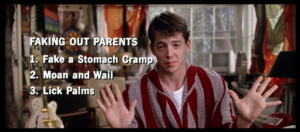After reading Benito Cereno I’ve come to the conclusion that the novella doesn’t exactly paint African enslavement as the horrible reality that it truly was. I feel that we are made to sympathize with Captain Delano and Don Benito more so than we are with the plights of the African slaves on the ship. This is no doubt caused by the narrative lens in which we are viewing the events unfolding (Captain Delano) but also due to the biases of the time in which this story was written. At the time this story was written, Blacks were still enslaved and seen as second class citizens. That being said I can’t say that the novella necessarily paints African enslavement in a positive light either. I would say its complacence and inability to give the African characters a real voice in the story end up taking a pro-slavery stance in it’s silence on the atrocities that enslavement truly entailed.
In my opinion Delano’s blindness greatly stems from his privilege and perceived authority over others, even over Don Benito himself. Delano is in a position of power over even Don Benito himself because he has provisions which can help the famine stricken members of Benito’s vessel. This position of authority dissuades him from thinking he can ever truly be in danger.




